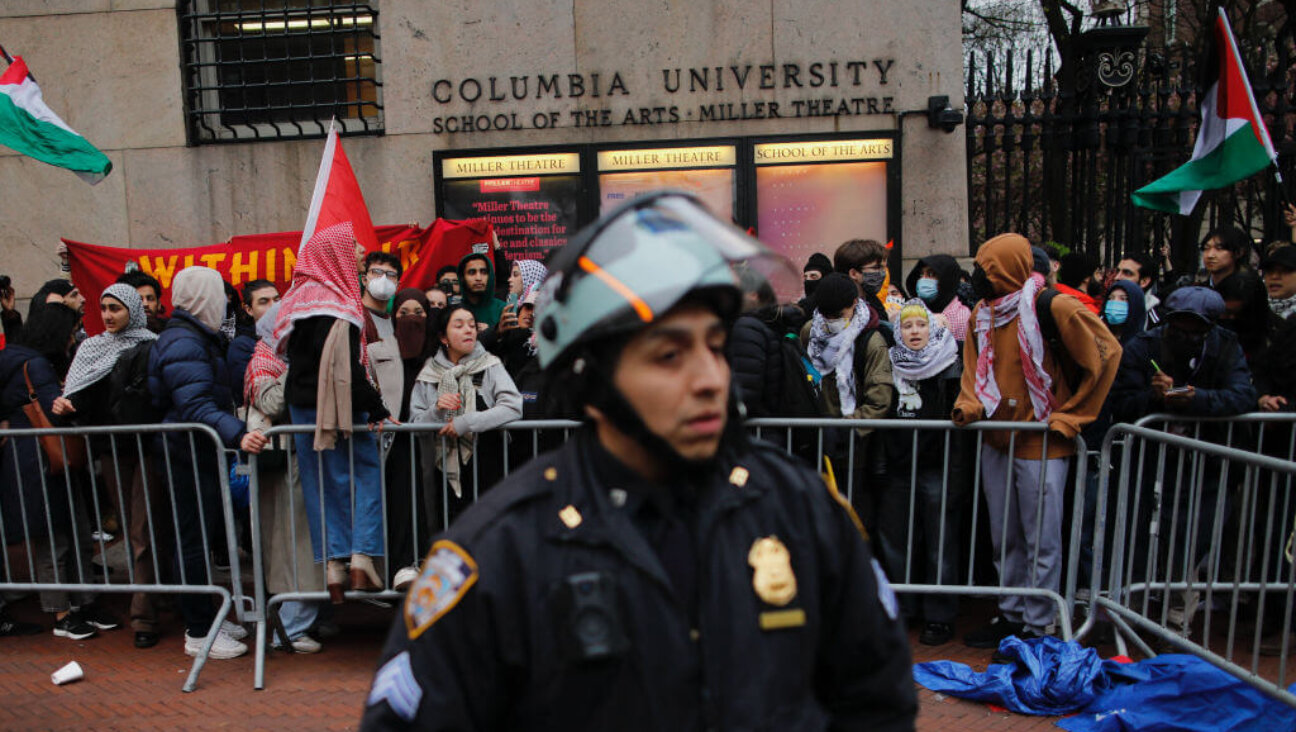Ancient Amsterdam Jewish Cemetery Refurbished After 70 Years of Neglect

Image by jewish historical museum
An ancient Jewish cemetery in Amsterdam has been reopened after almost 70 years of neglect, thanks to help from Moroccan and Jewish youths who renovated it.

Image by jewish historical museum
The Zeeburg cemetery will be open to the public on the first Sunday of every month, a spokesperson for the Association for the Restoration of the Zeeburg Cemetery told JTA.
The opening was made possible by a few dozen Jewish and Moroccan youths who volunteered with the association since 2011 to clean up the area, where approximately 175,000 Jews are buried, the association’s deputy chairman Marcel Mock said. Along with other volunteers referred by the City of Amsterdam, the youths painted over graffiti-covered walls, cut overgrown grass and weeds, and helped restore some of the paths that crisscross the site in eastern Amsterdam.
In total, the restoration cost about $150,000, which was raised from Jewish and non-Jewish sources, including the city. The Zeeburg association – known in Dutch as Stichting Eerherstel Joodse Begraafplaats Zeeburg – hopes to complete further renovations ahead of the cemetery’s 300th anniversary next year.
Having remained closed to the public since 1945, the cemetery – one of the largest of its kind in Western Europe – attracted a crowd of 1,100 visitors last year when it opened its doors for just one day.
Historically, the cemetery was the final resting place for the poorer members of Amsterdam’s Jewish community. Many originally were immigrants from Eastern Europe who settled in Amsterdam in the 18th and 19th centuries.

I hope you appreciated this article. Before you go, I’d like to ask you to please support the Forward’s award-winning journalism this Passover.
In this age of misinformation, our work is needed like never before. We report on the news that matters most to American Jews, driven by truth, not ideology.
At a time when newsrooms are closing or cutting back, the Forward has removed its paywall. That means for the first time in our 126-year history, Forward journalism is free to everyone, everywhere. With an ongoing war, rising antisemitism, and a flood of disinformation that may affect the upcoming election, we believe that free and open access to Jewish journalism is imperative.
Readers like you make it all possible. Right now, we’re in the middle of our Passover Pledge Drive and we still need 300 people to step up and make a gift to sustain our trustworthy, independent journalism.
Make a gift of any size and become a Forward member today. You’ll support our mission to tell the American Jewish story fully and fairly.
— Rachel Fishman Feddersen, Publisher and CEO
Join our mission to tell the Jewish story fully and fairly.
Only 300 more gifts needed by April 30
























